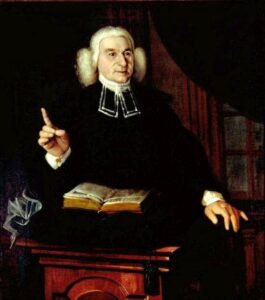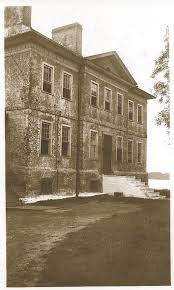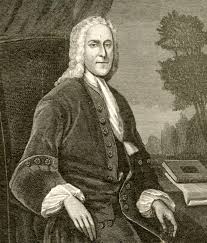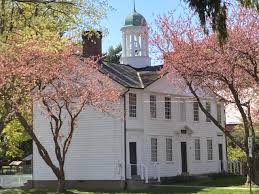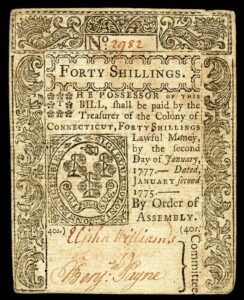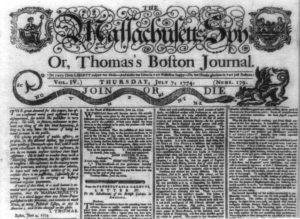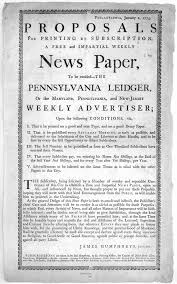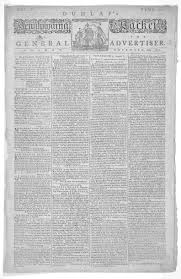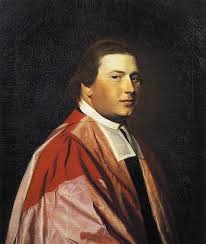Americanism Redux
January 2, Your Today, 250 Years Ago, In 1775
A new year.
* * * * * * *
(Parkman)
It was six months ago—six months! Hasn’t enough time passed? Why do they keep coming back at me?
Reverend Ebenezer Parkman sits in the house next to his church. Many of his congregants verge on despising him. He knows it. He doesn’t sleep well, food tastes bland, and his nerves are on edge.
Six months ago, in a Westborough town meeting in the colony of Massachusetts, Parkman had stood up and expressed his discomfort over a movement called the “Covenant”. It was a radical group urging harsh treatment of people who were either neutral or favorable toward the British imperial government’s Coercive Acts. Members of the Covenant wanted to use the controversy, one, to destroy British control of the colony and, two, establish a more morally and religiously purified way of living. They held deeply to the idea of colonial rights and regarded with suspicion anyone who didn’t match their level of support.
Parkman was uneasy over the Covenant. He said as much a half-year ago. The Covenant’s supporters never forgot it and they’re back now to punish Parkman. The current difficulties of living under British punishment have revived their animosity toward the Westborough preacher.
How can he now make them understand that he’s with them and not against them?
The winter howls outside Parkman’s window. The cold night holds many shadows.
* * * * * * *
(an almshouse)
Boston’s frigid temperatures are hard on Margaret Cunningham and her young son, William. Margaret can’t find a way to support both William and herself. It was always a tough proposition in the best of times. But today, 250 years ago, this is far from the best of times in Boston as the Coercive Acts suffocate the local economy and upend longstanding social and political ways. Mother and son, the Cunninghams, are entering the town’s almshouse where they will work on small jobs assigned to them. In exchange, they receive food and shelter, living under one roof with other people suffering from poverty and hopelessness.
Their bodies will consume enough calories to survive and feel enough heat to avoid freezing.
* * * * * * *
(Mercy Otis Warren)
“Heaven only knows how long we can continue in this state. But such is the ferocity of Human Nature that it is not to be expected societies can subsist long without some government which may finally drive us to assume such a form as it most Consistent with the taste and genius of a free people.”
These are the words of Mercy Otis Warren, of Plymouth, in the colony of Massachusetts. She is thankful for the Continental Congress (consisting last fall of representatives from twelve colonies, since adjourned and set to reconvene in spring) and the Provincial Congress (cobbled together to operate as an anti-imperial government in Massachusetts to maintain law and order).
Two women of Massachusetts, Margaret Cunningham and Mercy Warren, one with a life imploding and one with a world exploding. They are two days into a year with a dread of blasts and shocks yet to come.
* * * * * * *
(Thomas Cushing)
Thomas Cushing is in Boston. He’s glad that nearly everyone he’s talked with still approves of the Continental Congress that adjourned last fall. His optimism carries him into a hopeful expectation that Canadians will join the protest against British imperial policy.
Cushing knows Boston is clinging to the window ledge. Residents have adopted the Provincial Congress “to save themselves from Impending Ruin and to preserve their inestimable Liberty.” He admits its members may have “gone beyond the true line marked out by the Constitution.” Still, this is “an alarming, perplexed, and critical situation…a distressed situation.” Hard as it is to imagine, the situation has worsened from fear of armed punishment of future protest. The only thing that many people think about is self-defense if such violence comes, but that thought has morphed into outright panic because of an imperial ban on gunpowder from Britain. Thus, supporters of colonial rights in the colonies of Rhode Island and New Hampshire have seized supplies of ammunition and weapons held in imperial forts.
They’re preparing for the worst to turn worse.
* * * * * * *
(would he be one of the 5,000 to 10,000?)
In the colony of Massachusetts, John Adams is counting people in his head. 5,000 to 10,000, that sounds about right to him. This is the range of men he expects to be killed in battle, himself included, that “would be very Profitably Spent, in obtaining a Restoration of our Liberties.”
* * * * * * *
(part of historic Fairfield)
In the next colony south, Connecticut, the Fairfield County Committee of Safety has ordered the banning of any public writing that sympathizes with the Coercive Acts and pro-imperial British policymakers. People can’t be allowed to read these ideas and opinions, the Committee declares. To do so risks poisoning their minds.
* * * * * * *
(the new bills of credit)
The colonial government of Connecticut has released a new quantity of money in the form of bills of credit. 15,000L worth. Payable two years from now, January 2, 1777. Usable for paying debts and conducting trade. Dependent entirely on the giver’s and taker’s view of their validity, their level of confidence.
One side features this slogan in Latin: Qui Tran Sust.
“What is transplanted survives.”
Interesting word that…
“Transplanted”.
* * * * * * *
(see the snake)
The newspaper “Massachusetts Spy” is featuring the following phrase on its masthead:
“Join or Die”
It’s the wording that goes with Benjamin Franklin’s 20-year old drawing of a snake, chopped into pieces and labeled with individual names of colonies. He’d sketched it at the start of the French and Indian War.
Same reptile, different era.
* * * * * * *
(business proposition)
James Humphrey, Jr wants in on the action. With the uproar of colonial-imperial disputes having no end in sight and the market for micro- and macro-political reports at all-time highs, he is launching a new weekly hand-held outlet of print media in Philadelphia, the “Pennsylvania Ledger”.
Humphrey’s choice for a motto is intriguing: “a free and impartial newspaper”.
We’ll see how his market responds.
* * * * * * *
(the Packet)
Humphrey will be competing against other newspapers in Philadelphia. Today, 250 years ago, a copy of the January 2nd edition of the “Pennsylvania Packet” newspaper prints an essay urging readers to remind themselves of all the reasons for genuine gratitude to be shown toward Britain. This is the best mindset for the beginning of reconciliation, asserts the writer.
Does this qualify as “impartial”?
* * * * * * *
(Myles Cooper, one of the authors)
There’s no mistaking the tone and content of the essay sarcastically entitled “What think ye of the Congress now?”
The two authors, Myles Cooper and Thomas Chandler, have published in the colony of New York a scathing account of the work of the Continental Congress. They blame the delegates for the current calamity in imperial-colonial relations. Members of the Congress, Cooper and Chandler state, have been working for seven years to erect an independent nation in the colonies. The only recourse is for a colony to withdraw from the Continental Congress and all associated groups.
Also
(Dartmouth now says “yes”)
Today, 250 years ago, William Legge, the 2nd Earl of Dartmouth, leans back in his chair. He runs a hand through the unpowdered hair on his head. The steam of hot tea rises from the porcelain cup on the table next to him. Surely a sip will feel good on a cold winter’s day in the new year’s dawn.
He thinks, and thinks, and thinks. And in those thoughts:
He’s seen reports. He’s listened to opinions delivered in conversations. He’s reviewed laws, cases, rulings. He’s heard his mind’s silent voice beliefs of what people say when he’s not around, the whispering shadows dancing on the cave wall. He knows how King George III is thinking about Britain’s colonies in America.
For Lord Dartmouth, the time has come. He can see himself saying “yes”—a “yes” not remotely imaginable to him in his worst nightmares a year ago. But time passed, things changed, the River ran. Now he can see himself scribbling and saying the word “yes” to the decision that the next convening of the so-called Continental Congress in Philadelphia, colony of Pennsylvania, must be prevented. To do so, none of the thirteen colonies should be allowed to choose and send delegates to the illegal “Second” Continental Congress set to meet later in the spring. They’ll be stopped, blocked, and shut down from selecting their unlawful delegates.
How?
Well, no one’s talking about that. The walls of Plato’s cave are bare when that topic comes to mind. George III hasn’t pontificated on it yet.
* * * * * * *
(the man who feels better)
At his home Strawberry Hill in London, England, Horace Walpole celebrates the new year with the realization that he’s feeling better, so much better, after a recent illness. “I have been up five times quite round my room today and my month is not up! The day after tomorrow I shall go down into the dining-room, the next week to take the air.”
Walpole knows that a friend of his enjoys hearing all the “news” of the day’s important events. “You want news”, Walpole recognizes. “There are none to be had”.
Careful to realize the meaning of that word-object “news”. Careful, too, to realize the match of the noun to the verb: “news”/”are none”.
It’s literal, “new” since last time, whether a day or a week or a month ago, whatever the time frame was when a detail, datum, report, or rumor had appeared “fresh”. More than one of any or each, then, makes it “news”.
Today, 250 years ago, people on either side of the Atlantic Ocean are hungry for news, and a major news-generator is the imperial-colonial dispute.
For You Now
We’re seeing the birth of something.
It’s war.
The tensions between the British imperial government and the American colonies have existed for a while. Out of the tensions have evolved new laws, protests, punishments of the protests, and counter-reaction to the punishments. Along the way, we’ve seen bursts of mob action.
But a different thing is happening as we round the bend of late 1774 into early 1775. Weapons and ammunition are sought. Plans, each with the potential for clashes, are carried out across distances. Organizations have emerged, some of which are pre-established while others of which are created. People in the organizations devote time to practice at violence. The acceptance of violence as an outcome is rising quickly.
War in memory tends to function like a light switch. Through the fog of spent time, we feel along the wall for the point at which war turns on and starts or turns off and ends.
The reality is that no light switch exists. We’re seeing such a reality in the thoughts of John Adams, the willingness of groups in Massachusetts and Connecticut to squelch disagreement and silence dissent, and Lord Dartmouth’s willingness to prevent the next Continental Congress. And don’t forget in a previous Redux the decision of Massachusetts Governor General Thomas Gage to send military expeditions into the countryside when necessary. Tie the outlooks of Gage and Dartmouth together and you a new environment emerges.
The elements of war have swarmed into a visible mass. It’s in the air, entering the body, mind, and soul of each person inhaling and exhaling.
War will be a world unto itself.
Suggestion
Take a moment to consider: what should Reverend Ebenezer Parkman say to convince people of his convictions?
(Your River)
